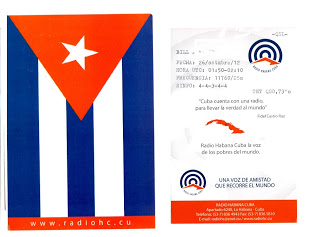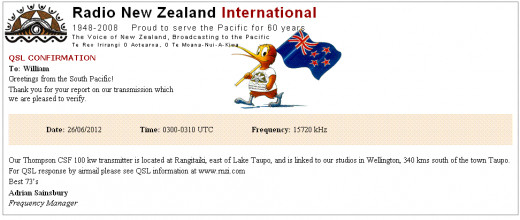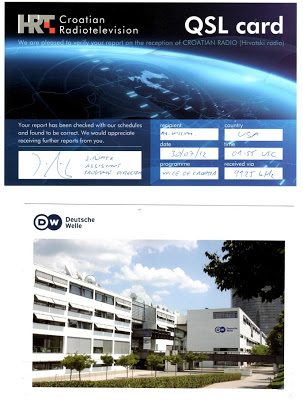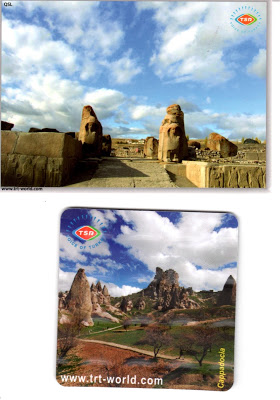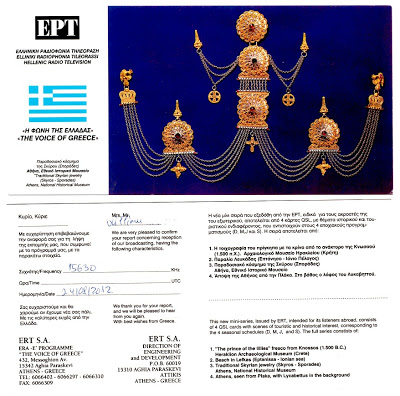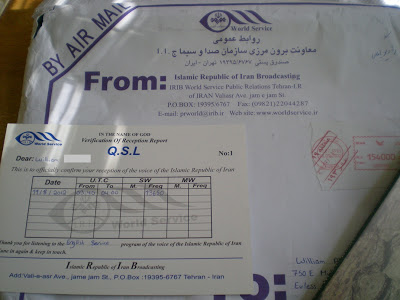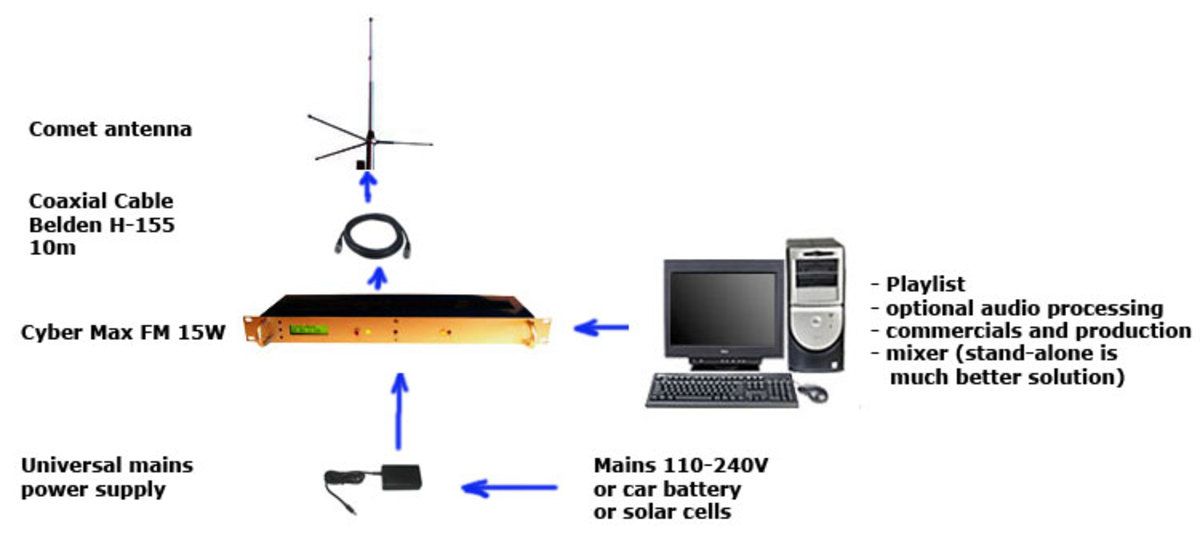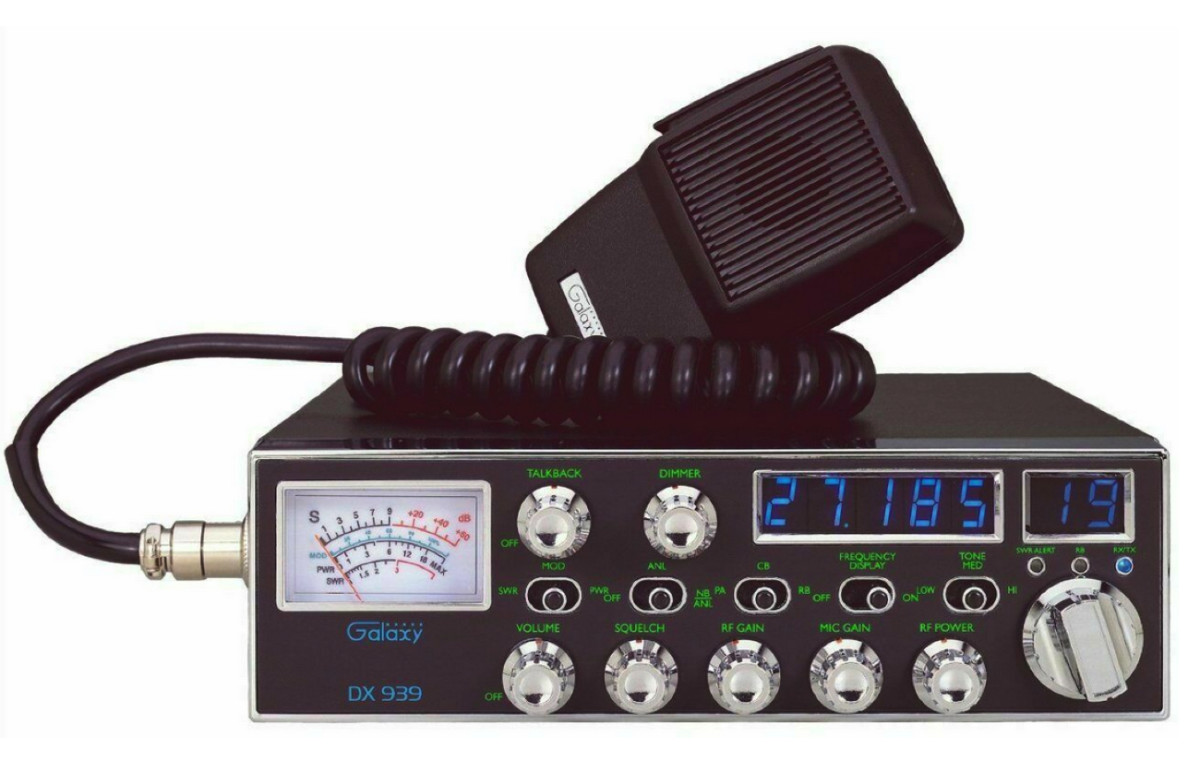Postcards From Around The World: What Is A QSL Card?
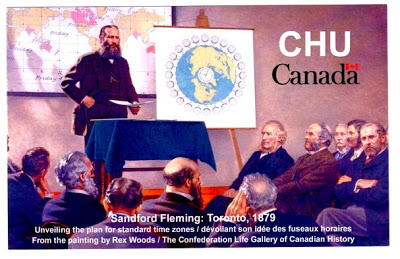
What is a QSL?
A QSL card is what a radio station (or amateur radio operator) will send a listener as confirmation of a reception report. For example, if I hear ham radio operator KP4X3 on my receiver, I'll send him or her a letter or e-mail letting that operator know that I heard their transmission. Normally, you would specify what date and time you heard them and on what frequency. It is also common to state what equipment you were using when you heard the transmission. Sending this information to the radio operator helps the operator know how far his or her signal is travelling, how well it can be heard and whether any tweaks or alterations need to be made to the equipment. In turn, the radio operator will send a "QSL card", which is often a postcard, to the listener. This card serves to confirm that what the listener heard was indeed correct, and that the information submitted by the listener matches details of the transmission. 'QSL' is radio code for "do you confirm receipt of my transmission?" or "I confirm receipt of your transmission".
Ham radio operators are certainly not the only ones who send out QSL cards. International and domestic broadcasters, especially those who transmit over shortwave, have long engaged in the practice. While many people still collect QSL cards, and many broadcasters still issue them, it is a shrinking hobby. Many international broadcasters have either left shortwave in recent years or no longer acknowledge reception reports.
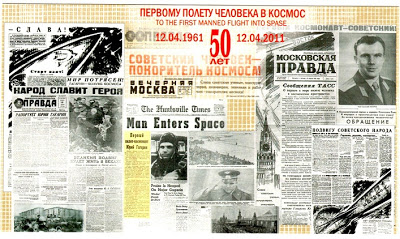
What is SINPO?
SINPO is a code used to measure the quality of a radio transmission, and is widely used when sending reception reports to radio stations. SINPO stands for Signal, Interference, Noise, Propagation, and Overall, and each letter would be replaced by a number from 1 to 5 when using the code. The number 1 would be the lowest and 5 would be the highest. For example, if I heard China Radio International one night and the signal was strength was very strong, there was some interference, almost no noise, the signal faded occasionally and the reception overall was pretty good, I'd submit a SINPO rating of 53534. A really weak transmission with lots of interference, noise and fading would be rated something like 22122.
How do you request a QSL from a shortwave station?
First, look for a transmission on the shortwave radio bands. It helps to check a shortwave radio schedule, so you can have an idea what stations to hunt for at the time you turn your radio on. Once you catch a station, listen carefully for any information that can identify what station you're listening to. Some of this information can be station IDs, the name of a show or announcer or the language of the broadcast. Once you're fairly certain of what you're hearing, see if the announcer gives out an address to send reception reports to, although it would be easier to find this information online. Send the station a postcard or e-mail with the following:
- Your location
- Time of day (in coordinated universal time) you heard the station
- Frequency on which you received the transmission
- Quality of the transmission (it is preferable to use the SINPO code; see box to the right)
- Equipment you used to receive the transmission
- Your name and address if you wish to receive a QSL
Many international stations can take several weeks or months to respond to QSL requests, so be patient. If possible, send your request by snail mail. Include a postcard or some other detail that identifies your country and/or go into detail as to what you heard and why you found the programming enjoyable. Adding these touches to your requests usually makes them more warmly received than a dry e-mail message.
Selected QSL cards from my collection
I have only sought and received QSLs from international shortwave broadcasters, and have a small collection of cards from all over the world. Below I share some of my favorites. All of these are from 2012 onward.
